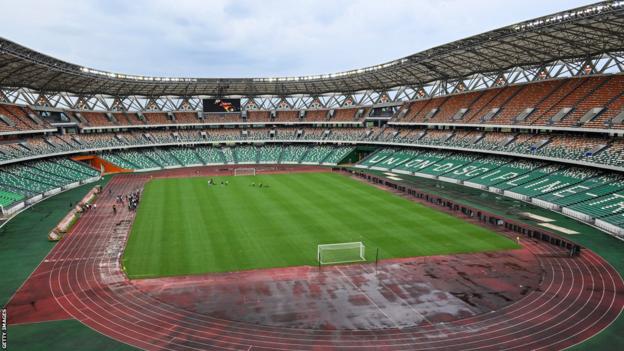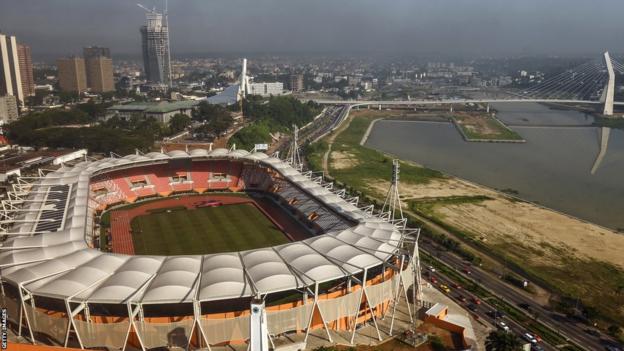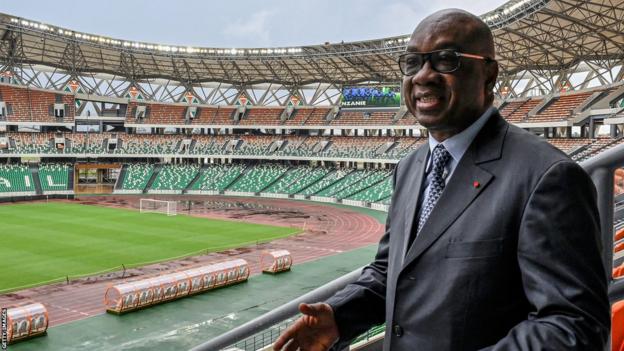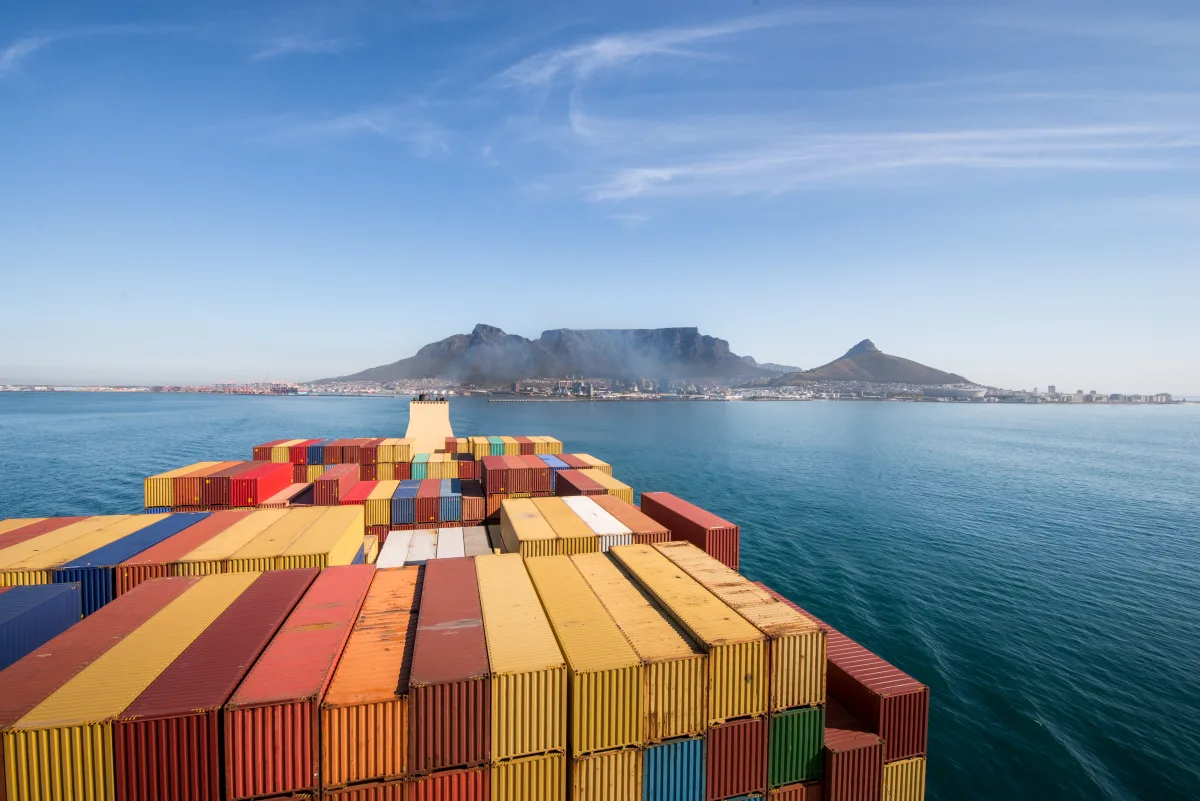Optimism about the African Continental Free Trade Area (AfCFTA) is high among African CEOs, according to the latest survey by the Pan-African Private Sector Trade and Investment Committee (PAFTRAC).
December 6th, 2023 By Kwame Ofori Appiah Image : Chris / Adobe Stock
The Pan-African Private Sector Trade and Investment Committee (PAFTRAC) has launched its annual Africa CEO Trade Survey, which gives a snapshot of sentiments among Africa’s business leaders and is intended to inform decision-making by African public policymakers. This year, over 1000 CEOs from 44 countries, the largest sample ever, participated in the survey. The report shows that while inflation and access to finance remain of great concern to businesses in Africa, many are optimistic about the prospects of the African Continental Free Trade Area (AfCFTA).
Presenting the results at the virtual launch of the report in a webinar on 21 November, Professor Patrick Utomi, chairperson of PAFTRAC and policy consultant to the Africa Export-Import Bank (Afreximbank), noted that the majority of the sample were small businesses, and about 35% had been in operation for five years or less. This, he said, reflects the fact that about 80% of businesses in Africa are in the small- and medium-sized enterprise (SME) category.
While rising debt and global security issues were of concern, high inflation was the major concern that interviewees had. “Overwhelmingly, inflation is seen as having the most significant impact on the continent and its businesses,”
Free trade spurs optimism
Despite the challenges, the survey indicates that optimism regarding the African Continental Free Trade Area (AfCFTA) is high. Over 50% of businesses anticipate a positive impact, while “about 24% think it will have a moderate effect on their business, and 18% think it would have little effect, or did not know what impact it would have on their businesses,” Utomi said.
Another common hurdle highlighted by the survey is access to finance, which affects the ability of businesses across sectors to operate and to scale up their operations. Utomi noted that agriculture, manufacturing, and transportation firms particularly identify financing as a major hindrance. “It goes to show that if financing does not exist, then anything else we’re speaking about, whether it is cross-border trade, unification or AfCFTA, would amount to nothing more than rhetoric,” Utomi stressed.
As in previous surveys, a notable concern was the lack of adequate information on the AfCFTA. “Most of them did not know what the AfCFTA was, what it meant for their businesses or, more importantly, how to tap into it,” Utomi said, stressing that without this information, SMEs in particular would be left out of the AfCFTA because they would not know how to engage with it and access the benefits they could derive from doing so.
In response to these concerns, Utomi said, the report makes a number of recommendations, which focus on boosting value-added production; providing more information on AfCFTA opportunities; creating forums for SME engagement with policymakers; incentivising cross-border aggregators; and fostering collaboration between the private sector and development institutions. The report also highlights the need for capacity improvement, structures for businesses to access financing, and continuous monitoring and evaluation of AfCFTA implementation for a prosperous future of trade in Africa.
The presentation was followed by a panel discussion with Professor Utomi; Gwendoline Abunaw, managing director of Ecobank Cameroon; Geoffrey White, CEO of Agility Africa; and Amit Agrawal, Ghana country head at Olam Agri. The discussion was moderated by Pedro Besugo, head of business development at Invest Africa.
Related articles
Access to finance is critical
Utomi welcomed the report’s findings, saying “it is an important affirmation of something that we know, which is the problem of access to finance being a major challenge, especially for cross-border trade.” He noted that inflation also remains a major challenge, arising from recent trends and supply chain crises related to the Covid-19 pandemic. This, he said, has had a significant impact on the capacity of small scale businesses to deal with the commitments they have.
Utomi also underscored the significance of information availability and the role of aggregators in facilitating efficient trade and emphasised the need for SMEs to recognise the benefits of collaboration and aggregation across borders, which he said could give them the kind of volume that would make them significant global players. He stressed that PAFTRAC will continue to play its advocacy role and work with policymakers to create the conditions most conducive to business and trade on the continent.
Reacting to findings from the report which indicate that central Africa is the least dynamic region in the continent, Abunaw said that “The flows are not at the level that they should be. And it actually shows that there has been a regression or it has been stagnant,” she said. Other obstacles to regional trade, Abunaw said, are inadequate transportation links, economic and physical integration barriers, and complex customs and tax regimes. “Trade liberalisation would definitely boost economic growth and poverty alleviation,” she argued. She pointed to efforts by financial institutions such as Ecobank to facilitate money transfers and to support small and medium-sized players in cross-border trade, while emphasising the crucial role of political will in addressing infrastructure, tariffs, and trade-related decisions among participating countries.
White said he was most heartened by the enthusiasm shown for the AfCFTA, which has the potential to create a market of 1.3bn people, growing to 2.4bn over the next 25 years. “The concept of the AfCFTA is strong and so beneficial for everyone,” he said. He noted that his company, Agility Africa, which is building warehouses across Africa, will make it easier for local and foreign businesses to operate in Africa.
Following Covid-19, companies are keen to produce locally to obviate challenges associated with moving goods across long distances. Creating a larger market through the AfCFTA would make Africa a more attractive destination. “If you can actually move goods across the borders easily and seamlessly and in one trade bloc, West Africa, for example, becomes a 500m-person market,” he noted.
Commenting on intra-regional trade, Agrawal noted that the Economic Community of West African States is a good example of a regional trade bloc that works. “The Ecowas regime works actually pretty well in terms of documentation, acceptance across borders, zero duty and entry into various markets within the Ecowas zone,” he said. It also has a good road network that enables the transport of goods from Ghana as far as Niger and Benin, for example.
With regard to the AfCFTA, he observed that uneven tariff regimes are likely to be the biggest stumbling block to its successful implementation. Increasing intra-regional trade will also depend, in large measure, on expansion of the road infrastructure, Agrawal said, pointing out that, in some cases, it is more cost-effective to transport goods from Asia to Africa than between African countries.
He proposed a phased approach to implementation, beginning with making regional blocs function more smoothly. “I think the first thing that the African Union can do is to make the regional blocs work very smoothly. There is a lot of scope to make them work better,” he urged.
On how to improve regional trade, Abunaw stressed the importance of facilitating the movement of people within sub-regional blocks and across Africa as a whole. Streamlining visa procedures, she said, would discourage the use of informal routes.
She also suggested that “if people know what they’re supposed to pay, and we can actually digitalise it, it becomes formalised and transparent and it would also greatly improve the flows.” She suggested that parity in currencies would mean that traders do not need to go through a foreign currency to buy across borders. Finally, she advocated for capacity building and increasing production, underscoring the need to provide knowledge and promote the use of initiatives from development banks and governments.
……
Source: AfricanBusiness, 6th December 2023
 afric-Invest
afric-Invest




